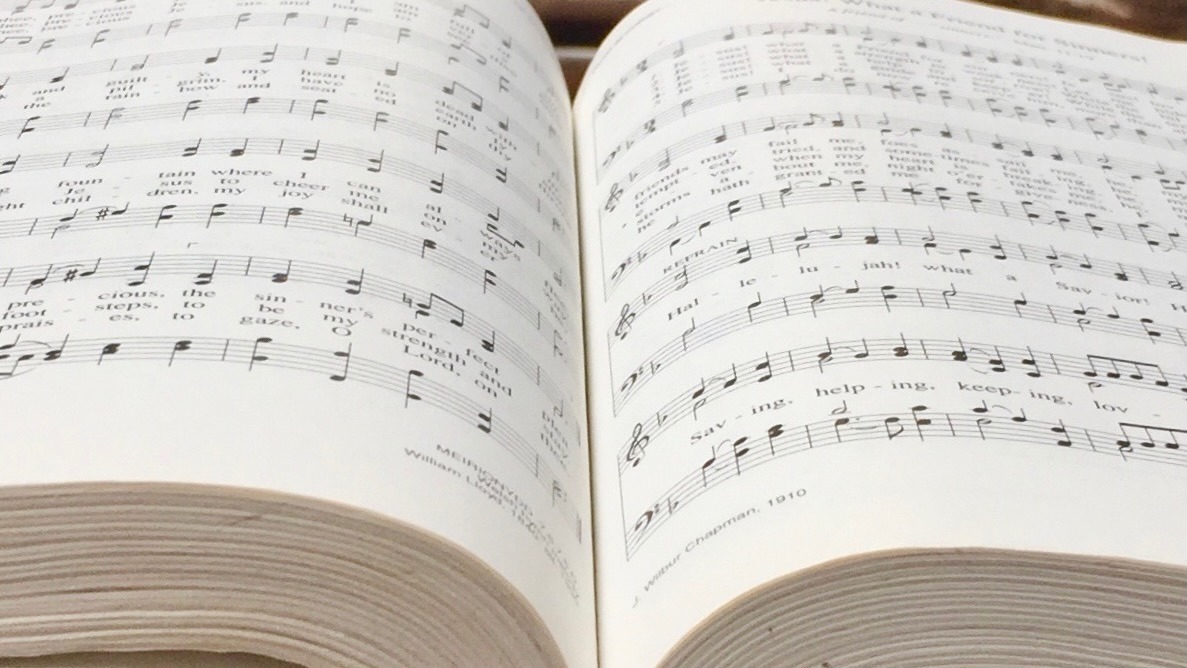Your Priestly Role of Singing

Disclosure: This post may contain affiliate links, meaning Beautiful Christian Life LLC may get a commission if you decide to make a purchase through its links, at no cost to you.
Music has a unique way of moving people’s affections outside of themselves towards something greater. Throughout history, music has been a means of moving people from depression towards joy. In fact, Martin Luther once wrote, “Next to the Word of God, music deserves the highest praise…. The gift of language combined with the gift of song was only given to man to let him know that he should praise God with both word and music, namely, by proclaiming [the Word of God] through music.”[1]
Most of us would speak with great endearments of music in general, but what if music has a greater role than just a delightful noise for our ears?
If you are a Christian or have ever visited a church, you have likely noticed that singing has an important role in the liturgy. In Paul’s letter to the Colossians, one of the most visual expressions of those who have been loved by God is singing to him and one another. Paul writes in Colossians 3:16,
Let the word of Christ dwell in you richly, teaching and admonishing one another in all wisdom, singing psalms and hymns and spiritual songs, with thankfulness in your hearts to God.”
In one sense, to love is to sing.
The Believer’s Priestly Role of Singing
Yet, singing has a more authoritative and weighty role than we might acknowledge. In 1 Chronicles 15, King David is delivering the ark of God back to its proper place among God’s people in Jerusalem. In fact, it is a star-studded event full of all the glitz and glamour properly due to God. The host of musicians present at this event is meant to demonstrate the weight of the fact that God dwells with his people.
In 1 Chronicles 15:16-24, we have a list of singers and instrument players—all part of the drama of the returning ark of the covenant. But nestled into this list of singers and musicians is an often overlooked verse. 1 Chronicles 15:22 says,
Chenaniah, leader of the Levites in music, should direct the music, for he understood it.
Why is this little verse so important? Throughout the Bible, we learn that the Levites were the priestly figures God had called and set aside to function as mediators between man and God. We often focus on the priestly work of atonement and sacrifice (e.g. Lev. 16), as we ought to do. But have we ever noticed that the priestly role of singing is in some sense a mediator between man and God in the form of song? There appears to be a weight here that necessitates us honoring the role of song as a priestly function, as well as recognizing that what it accomplishes is pleasing to God himself.
Jesus, our Singing High Priest, Leads Us to Sing
As mentioned earlier, we often make much of the priestly role in atonement, especially regarding our great high priest, the Lord Jesus Christ. The great news is that we don’t have to divorce the priestly role of atonement from the priestly joy of singing. After the Last Supper with his disciples, Jesus prepared to enter into his priestly work of sacrificing himself on behalf of his beloved people.
Knowing that he would soon be falsely arrested and crucified, the High Priest himself first led the disciples in a song of preparation for his work of atonement. In another short verse, Matthew 26:30 says, “And when they had sung a hymn, they went to the Mount of Olives.”
After Jesus completed his priestly work of atonement, Hebrews 10:20 assures us that the veil that once separated God and man has been torn, allowing access for all of God’s people into the presence of our God. The Mediator himself sung his way to the cross and opened a place for all of our prayers and songs to go.
Christians are to be a singing people.
This means that in the present time we are to be a singing people, joyfully making the affections of our hearts burst forth towards our singing Savior. Not only that, he has made us a kingdom of priests who now and forevermore will sing songs to him. Revelation 5:9-10 gives us a picture of our future singing as the apostle John writes,
And they sang a new song, saying,
“Worthy are you to take the scroll
and to open its seals,
for you were slain, and by your blood you ransomed people for God
from every tribe and language and people and nation,
and you have made them a kingdom and priests to our God,
and they shall reign on the earth.”
Let us be a people who resolve in the good and the bad to be a singing people, knowing that we have a God who sings over us in delight (Zeph. 3:14-17).
Related Articles:
- 3 Things about Jesus’ Reign You Need to Know—Whether You’re a Christian or Not
- The Log in Our Eye: Is the Church Filled with Hypocrites?
- When Your Spouse Won’t Join a Solid Church
- 3 Reasons Why Christians Should Recite the Lord’s Prayer at Church
Notes:
[1] Luther’s Works, Vol. 53: Liturgy and Hymns (Fortress Press, 1965), 323.

